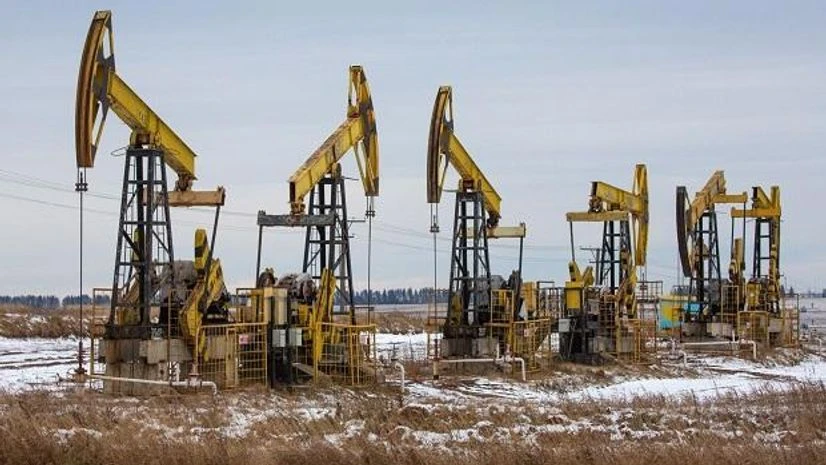By Scott DiSavino
NEW YORK (Reuters) - Oil prices steadied on Thursday, under pressure from a stronger dollar and a drop in global stock markets while supported by supply worries after the European Union (EU) laid out plans for new sanctions against Russia including an embargo on crude.
Brent futures rose 42 cents, or 0.4%, to $110.56 a barrel by 1:54 p.m. EDT (1754 GMT). U.S. West Texas Intermediate (WTI) crude rose 3 cents to $107.84.
The U.S. dollar rebounded to its highest since December 2002, a day after the Federal Reserve affirmed it would take aggressive steps to combat inflation.
A strong dollar makes oil more expensive for holders of other currencies.
Also Read
Wall Street stocks tumbled as investors shed risky investments, worried the Fed might hike rates more this year to tame inflation.
The EU sanctions proposal, which needs unanimous backing from the 27 countries in the bloc, includes phasing out imports of Russian refined products by the end of 2022 and a ban on all shipping and insurance services for transporting Russian oil.
"The oil market has not fully priced in the potential of an EU oil embargo, so higher crude prices are to be expected in the summer months if it's voted into law," Rystad Energy head of oil markets research Bjornar Tonhaugen said.
Japan said it would face difficulties in immediately cutting off Russian oil imports.
The Organization of the Petroleum Exporting Countries, Russia and allied producers (OPEC+) agreed to another modest monthly oil output increase. Ignoring calls from Western nations to hike output more, OPEC+ agreed to raise June production by 432,000 barrels per day, in line with its plan to unwind curbs made when the pandemic hammered demand.
Giovanni Staunovo, a strategist at UBS, cited "mobility restrictions in China weighing on oil demand, high Russian crude exports in April and dwindling spare capacity" in OPEC+.
A U.S. Senate panel advanced a bill that could expose OPEC+ to lawsuits for collusion on boosting oil prices. Congress has failed to pass versions of the legislation for more than two decades, but lawmakers are worried about rising inflation and high gasoline prices.
Prices for near-term Brent and WTI oil futures are much more expensive than for future months, a situation known as backwardation. Robert Yawger, executive director of energy futures at Mizuho, said futures for both benchmarks through April 2023 were in "super-backwardation" with each future month at least $1 a barrel below the prior month.
Yawger said that situation could change as the U.S. government buys crude to replenish strategic crude reserves.
"The back of the curve will arguably have a strong tailwind in coming months, with the Biden Administration announcing today that the Department of Energy would start the process sometime this fall of buying back 60 million barrels of crude oil to refill the Strategic Petroleum Reserve," Yawger said.
(Additional reporting by Bozorgmehr Sharafedin in London, Florence Tan in Singapore and Stephanie Kelly in New York; Editing by Marguerita Choy, David Goodman and David Gregorio)
(Only the headline and picture of this report may have been reworked by the Business Standard staff; the rest of the content is auto-generated from a syndicated feed.)

)
